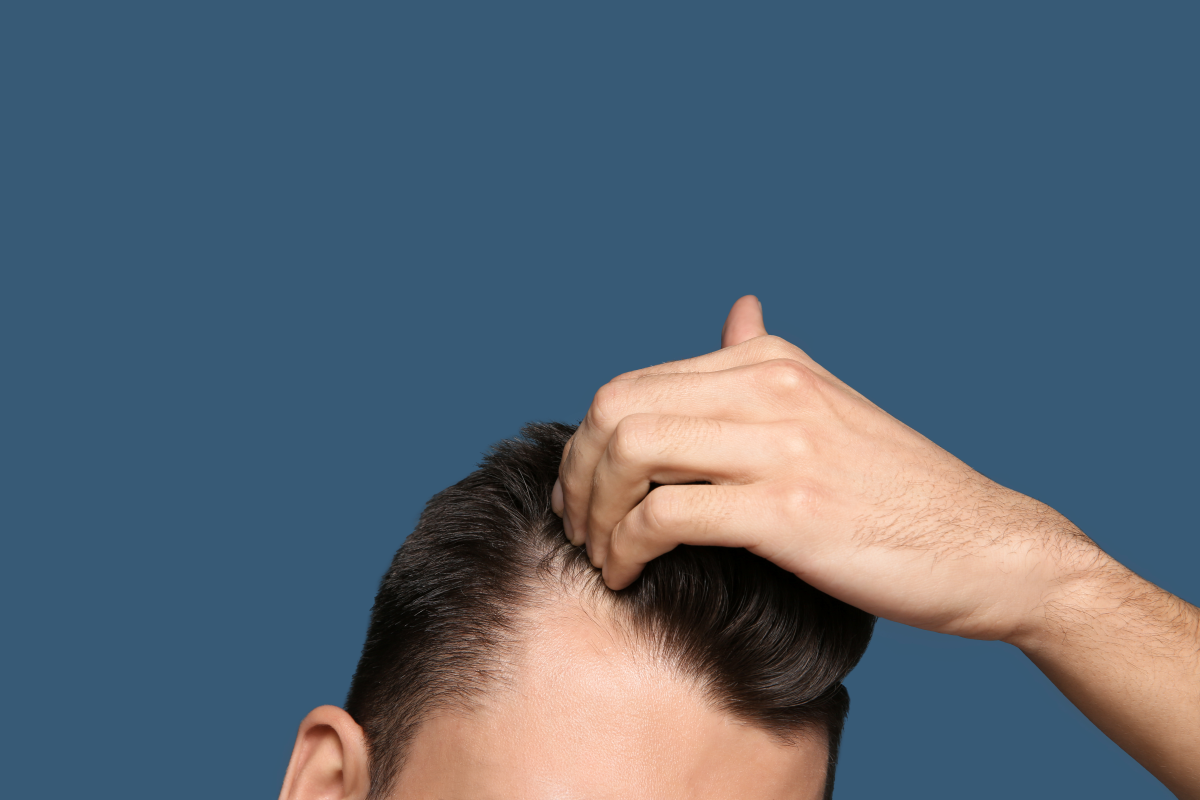Itchy, inflamed skin on the scalp may be more than dry skin. Scalp folliculitis is a relatively common condition that causes scalp itching, tenderness, and hair thinning. In most cases, it responds well to treatment, but without being treated, it can lead to permanent hair loss and other more serious concerns. According to Dr. Rehan Karim of U.S. Dermatology Partners in North Dallas, “When scalp inflammation or infection in hair follicles occurs, you may be dealing with scalp folliculitis. For some, this condition will clear up on its own using over-the-counter products. However, partnering with a dermatologist ensures an accurate diagnosis and effective treatment plan.” In this blog, Dr. Karim reviews symptoms and diagnostic procedures as well as answering frequently asked questions like what is scalp folliculitis and how is it treated?
What Is Scalp Folliculitis?
Scalp folliculitis is a condition in which the hair follicles to become inflamed. It’s often triggered when bacteria or fungus are trapped in the follicles causing irritation and infection, leading to itching and painful bumps common in folliculitis. According to Dr. Karim, “Scalp folliculitis goes beyond just itchy skin. It’s often related to chronic scalp inflammation and infection that can lead to scarring and hair loss. Luckily, there are many ways dermatologists can support patients in treating folliculitis and preventing it from happening in the future.” Most cases of folliculitis are mild, clearing up on their own or with the use of over-the-counter products. Chronic or widespread scalp folliculitis may be more serious, leading to a form of hair loss called scarring alopecia. Damage to the hair follicle and scarring on the scalp may even lead to irreversible hair loss.
Common Causes of Scalp Folliculitis
While anyone can develop scalp folliculitis if their hair follicles become damaged, it’s more likely to develop as a result of one of the following common folliculitis and itchy scalp causes:
- Infection – bacterial, fungal, or viral infections in the hair follicle can trigger the development of folliculitis.
- Environmental irritants – hats, tight hairstyles, helmets, or chemicals (like those found in some hair treatments, dyes, pools, or hot tubs) can all damage or irritate hair follicles.
- Shaving – even when done gently and using appropriate tools, shaving can damage follicles leading to folliculitis.
- The wrong products – oily or thick hair care products can clog hair follicles increasing risk for infection and folliculitis.
- Weakened immune system – those who take immune suppressing drugs like steroids or who struggle with diseases that weaken the immune system may have a more difficult time fighting off bacteria, fungi, and viruses.
- Hormonal imbalance – hormones regulate oil production as well as keeping sweat glands in check. Excessive oil and sweating are both common contributors to folliculitis.
Can Scalp Folliculitis Cause Hair Loss?
When it comes to scalp folliculitis and hair loss, Dr. Karim says, “The simple answer is yes, folliculitis can cause hair loss, but scalp folliculitis related hair loss can often be prevented with early intervention and treatment. Permanent hair loss related to folliculitis is usually the result of scarring alopecia. When the follicle is damaged, scar tissue forms and prevents hair regrowth. Additionally, people often struggle with weakened follicles allowing for increased shedding and hair breakage that may cause hair thinning. This is much more common than widespread hair loss related to folliculitis, and it can often be reversed.”
In addition to these two frequently occurring types of hair loss related to folliculitis, people may also experience patchy hair loss that is localized to areas where infection or pustules form in the follicles, preventing hair growth or disrupting the growth cycle. A very rare form of this condition, folliculitis decalvans, can cause extensive scarring and hair loss. It is a relapsing, chronic form of folliculitis that requires specialized dermatology care.
Symptoms to Watch For
One of the main concerns with scalp folliculitis is that it may often be misdiagnosed or confused for other conditions. Some of the telltale symptoms that indicate scalp folliculitis include:
- Small red or white bumps on the scalp.
- Itching or burning sensation.
- Pain or tenderness in the scalp.
- Oozing or pus-filled lesions.
- Crusting or scabbing over hair follicles.
- Bald patches or increased hair shedding.
How Is Scalp Folliculitis Diagnosed?
While the symptoms above may indicate folliculitis, it’s important to get a professional diagnosis from a dermatologist. Dr. Karim says, “Self-diagnosis and treatment can only do so much. A clinical examination ensures accurate diagnosis and effective solutions to address symptoms and heal the scalp.” In order to diagnose scalp folliculitis, your dermatologist will perform a thorough examination of the skin and hair. They may also recommend a biopsy or blood work to rule out other health issues. Most importantly, they will ensure they have ruled out other conditions on the scalp like psoriasis, seborrheic dermatitis, and tinea capitis (ringworm).
Treatment Options for Itchy Scalp and Folliculitis
The good news related to a scalp folliculitis is that this condition typically responds well to treatment. Scalp folliculitis is most treatable in the early stages. The treatment for itchy scalp and folliculitis will depend on the underlying cause of folliculitis as well as the severity of the case. Some of the most common treatment options include:
- Topical treatment – antibiotics, antifungals, and anti-inflammatory products may all be recommended in the form as topical creams or shampoos to address the symptoms and underlying causes of some forms of scalp folliculitis.
- Medications – oral antibiotics, antifungals, and corticosteroids may also be prescribed on their own or in conjunction with topicals to combat more advanced or widespread cases of folliculitis.
- Improved care – medicated shampoos or a gentle shampoo should be used regularly to keep the scalp clean and free from excess oils. Forego use of greasy, oily, or occlusive hair products. Allow hair to be loose and avoid styles that pull on hair.
Additional Care Tips
- Disinfect hairbrushes, hats, helmets, and other products that will come in contact with the scalp.
- Apply warm compresses to soothe skin and draw out pus.
- Don’t scratch the scalp as this can spread infection or further damage hair follicles.
When to See a Dermatologist
While some cases of scalp folliculitis can be managed independently, it’s important to consult a dermatologist if any of the following occurs:
- You try over-the-counter solutions, and they aren’t effective.
- Bumps are widespread.
- The bumps are painful or oozing.
- Visible hair thinning or bald spots.
- You feel scarring or changes in scalp texture.
Conclusion: Don’t Leave Scalp Folliculitis Untreated
According to Dr. Karim, “Itchy scalp, hair loss, and discomfort don’t have to be your norm. If you’re struggling with scalp folliculitis, don’t put off seeking scalp folliculitis treatment. Talk to a dermatologist and develop a plan to address symptoms and prevent future flareups before the damage has a chance to become too advanced.”
Schedule a Dermatology Appointment
If you’ve noticed bumps on your scalp, itching, or hair loss, it might be scalp folliculitis, but the team at U.S. Dermatology Partners is here to help. When you’re ready to get started, take a moment to complete our scheduling form. Once we receive your details, a team member will be in touch to finalize the details of your upcoming visit.
Find a location near me
or


